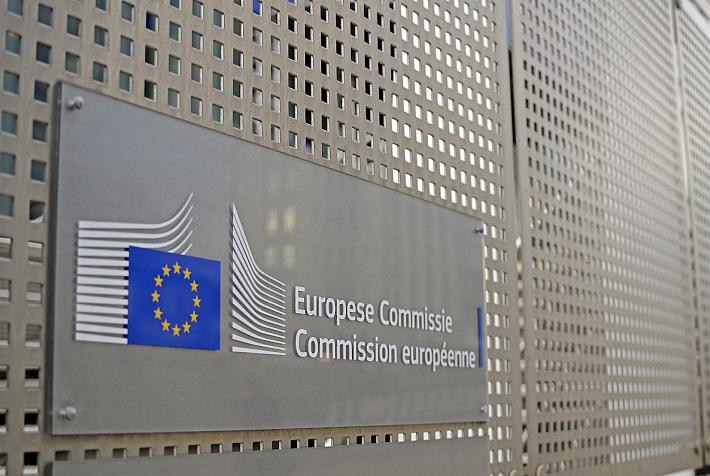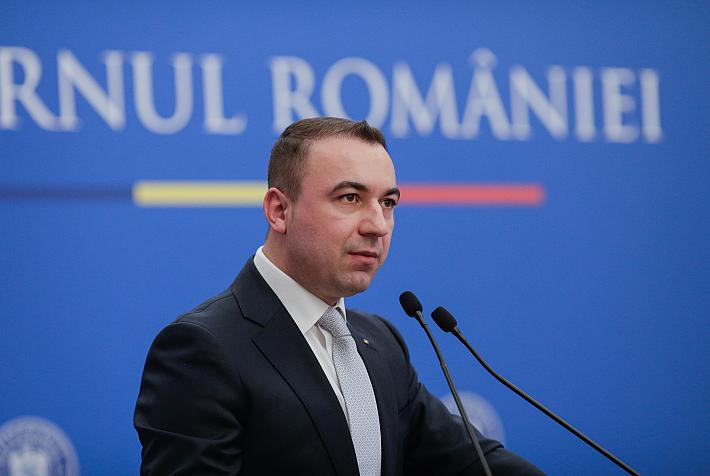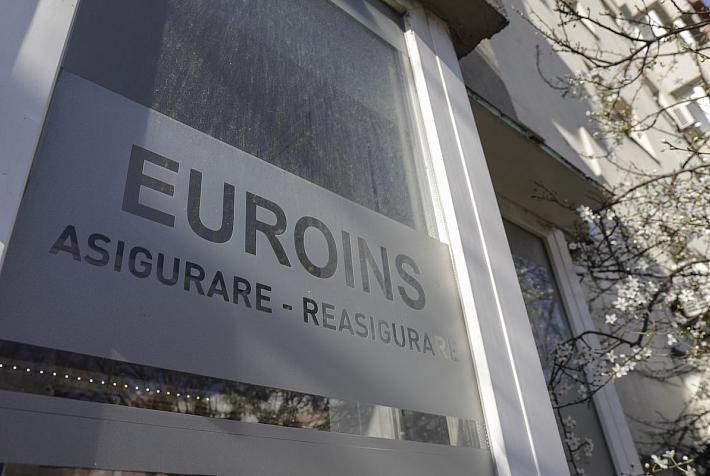Is social media suitable for Romania?

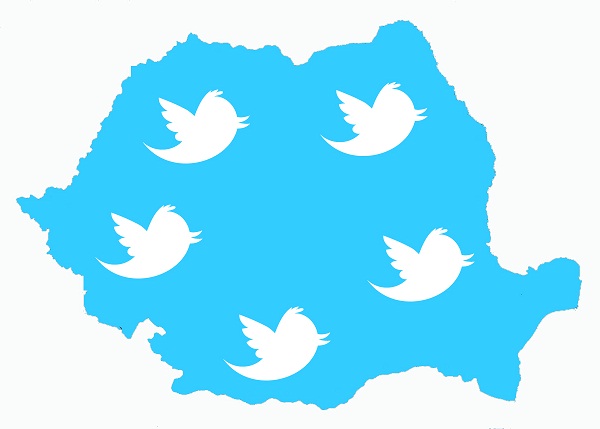 Smart companies, who understand social media, who are willing to commit the necessary resources and organizational change required, can and already are succeeding. But most companies are investing in social media without the full appreciation of the potential to involve and engage their own employees, as well as their consumers. This seems to be the case in Romania at this point.
Smart companies, who understand social media, who are willing to commit the necessary resources and organizational change required, can and already are succeeding. But most companies are investing in social media without the full appreciation of the potential to involve and engage their own employees, as well as their consumers. This seems to be the case in Romania at this point.
By Colin Whitfield
Before we answer the question in the title, let's take a look at the following table:
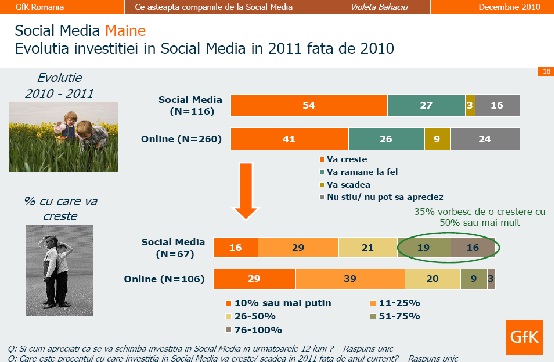
The table above represents the results of a survey conducted by GfK Romania between November and December 2010 comparing the evolution of marketing budgets dedicated to social media. From the 376 marketing executives representing small, medium and large Romanian companies, 116 respondents already had active campaigns in social media and 260 with online campaigns not focusing on social media. The data shows that the proportion of marketing spend for social media is growing with more companies entering the social media sphere 35 percent of respondents looking to increase in budgets by 50 percent or more. What is also interesting to note is that companies already present in social media are growing their investments as they become more familiar with the medium.
If we take planned investment as an indicator to whether social media is suitable for the Romanian environment or not, the consensus seems to be that it is, but investment in social media does not guarantee success.
Cultural and organizational shifts required
Let’s assume that social media is an efficient communication tool to address negative conversations, win over discontented customers and transform their fans into brand advocates. In order to leverage this potential, Romanian businesses have to have the ability to implement a deep organizational commitment, or in the very least dedicated resources to social media. Most Romanian companies are not geared up to take advantage of this however.
Social media requires a completely different approach to campaign scheduling than traditional media, which tend to run for a set time, according to the organization's financial calendar or market seasonality. Social media requires constant monitoring and participation in the conversation, consumers are interacting constantly and in real time. Imagine a conversation where you had to wait till next fiscal quarter to continue the debate?
There are several levels of involvement in social media, starting from externalizing the process to an agency, which may or may not specialize in social media. But optimally, the nature of social media necessitates an authentic interaction and presence, a dedicated social media centre or department, and who best to represent your brand than your employees?
The root of the problem for Romanian companies unfortunately is that there is an overwhelming lack of importance placed in the human resource, resulting in a mostly unmotivated, uncommitted and unhelpful workforce representing their brands. A lack of interest in the human resource unfortunately is also likely to lead to a lack of investment in the cultural and organizational change required to provide an authentic, responsive and helpful representation of the organization in the social sphere.

The attraction of users of social media channels after all is that they are empowered to express, share and influence the opinion of each other. The key word in the proceeding sentence is People. The medium lends itself to an opposing tone of traditional marketing communication, you have to tone it down, make it personal and offer a humanized representation of your brand. Who better to represent your brand therefore than your employees? What companies need to realize is that involving the workforce to participate in the conversation, can be an empowering and motivating cultural shift that can drive loyalty and motivation for all stakeholders (employees and consumers).
Clear guidelines, dedicated resources and gate-keepers are necessary components to avoid the potential for a public relations disaster. Social media is not a role for an intern, or junior staff. It requires leadership, experience and the right skills to deliver a social media program successfully.
State of social media in Romania in 2011
The increasing uptake on the consumer side will invariably pave the way for more and more brands to enter the social media landscape. Some brands have already experimented with positive result (see Nokia Romania’s Facebook Page), others are still testing the waters. Very few brands have been able to demonstrate however, that they understand their current and potential customers, and they are able to add value to the conversation. That is because most brands have not had the time to understand how the medium works best and as described earlier, it will require huge organizational and cultural shifts within the organization and the marketing departments to successfully leverage the full benefits of social networks.
Social media is inherently a trial and error process, and few companies in the Romanian environment will be able to demonstrate a long term commitment towards it.
The main beneficiaries of 2011 will be the international brands, or companies who are able to transfer the lessons, skills and resources learned from mature markets will stay ahead of the competition. The opportunity however, for innovative Romanian brands and smaller businesses is immense. The advantage of smaller companies is flexibility in adapting to this new environment. The larger companies may be too big and too bureaucratic to succeed in the dynamic ecosystem of the social environment. Celebrities too have a tremendous opportunity to grow and cultivate their fan base as the social medium allows them to interact deeper and richer than ever before with their followers. Online celebrities will be born too, as the tools available now make it easier to integrate, promote and share personal brands.
Is your organization currently active in social media? What are your insights, drawbacks and experiences so far in the Romanian environment? Feel free to comment below. We'll use your comments and ideas as a starting point for future articles.

Colin Whitfield is one quarter English, Greek, Spanish and Filipino. He grew up in Athens Greece, studied Philosophy and International Business at the University of Kent in the UK, graduating first in a class of 90. An entrepreneur at heart, at 23 he set up a real estate investment firm in Bucharest, at 25 he built a portfolio of EUR 10.8 million. Colin is an avid researcher of social media, has a profound interest in online business and is passionate about the dynamics between people, technology and brands. More about him on our editorial team page.
(Photo sources: Main photo copyright Romania-Insider.com; second photo source: Twitter)







